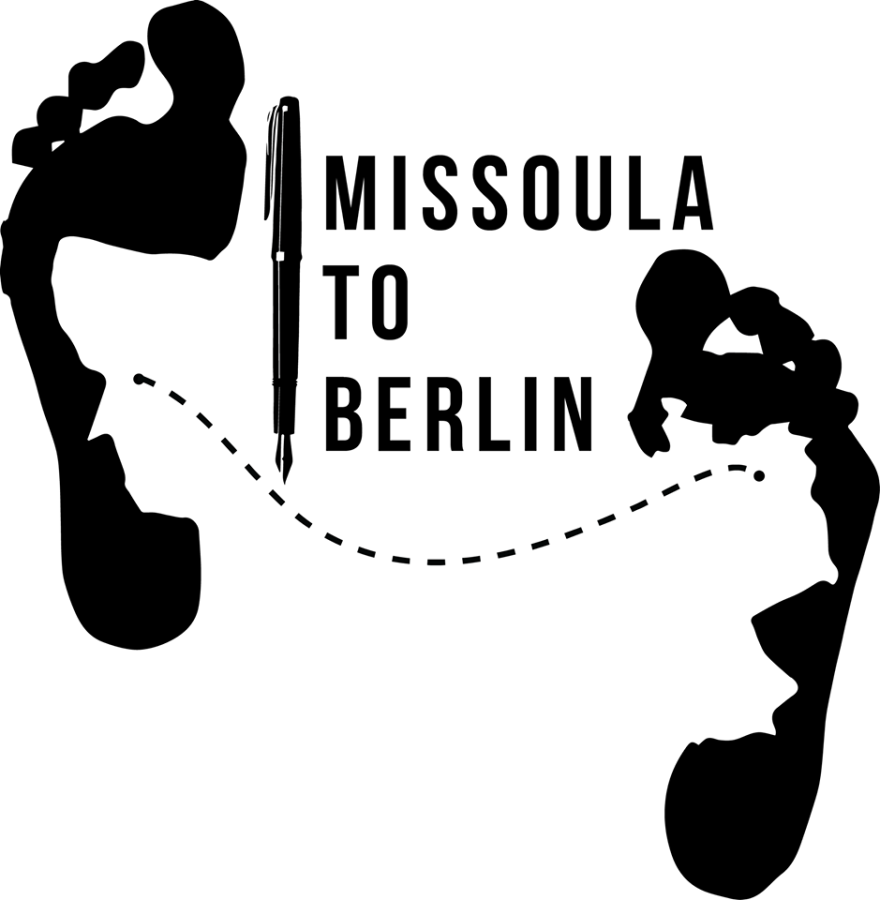Montana is often called “the last best place,” but for whom? In the last few months, Montana’s identity as a state of sanctuary has been complicated — some people say necessarily so — by Missoula’s agreement to resettle around 100 refugee families fleeing violent conflict.
This summer, 18 students from the University of Montana got to see what refugee resettlement actually looks like by traveling to Berlin, Germany for a three week course in international reporting.
“I realized just what a beautiful bubble I’ve lived in my entire life.”
That’s recently graduated journalism student Tess Haas. She says her perceptions about refugees were completely challenged.
“I was expecting something out of, like, a Save The Children commercial. Most of the refugees that we talked to were middle class, they had iPhones, they were on Facebook — like for some reason I didn’t expect them to have, you know, social media. And they would laugh in my face, like, of course I’m on Facebook," recalls Haas.
Beyond iPhones and social media, Haas got to see how Berlin struggles to respond to the influx of refugees.
“You know, everyone rushes when they see a crises. You know, food and water, food and water. But in some places we saw, you know, they had too much food and water at some points and they really needed social workers and people to help guide the process along.”
Haas says communities receiving refugees have to be resourceful and patient.
“We spoke to a woman who was sort of in charge of integration into Berlin schools. And she was saying that people are just -- they’re ready. I mean, they’re eager to learn, they’re eager to participate in the society. Now we just sort of have to give them the tools they need to do that.”

Haas reflected that her experience in Berlin has changed her perception of the resettlement challenges Missoula might face.
“If anything, going there made me realize that it’s a lot more difficult than you think. It’s more than just opening your door and saying ‘Come on in.’ People need independent lives, they need jobs, they need houses, they need schools for their kids. And of course we have the resources to provide those things, but I’m definitely not ignorant to the fact that it wouldn’t be easy," she says.
Haas is cautious about assuming what any refugee needs, but ventures to guess:
“They want the same things you and I want. They want to be comfortable, they want to go to the grocery store and feel like they’re the only person with that skin color. But at the same time, they also left the place that they had that comfortability. If you just put yourself in that position, would you really want to move to Missoula, Montana?”
Since returning to Missoula, Haas has had more reasons to question whether or not Montanans are ready to welcome Syrian refugees.
“Right before we came back there was the shooting in Orlando. And I’m from Bozeman, I went to a fairly conservative school there, so a lot of my Facebook friends were posting sort of just general Islamophobic terms associating one tragic event with an entire group of people that we had just spent so much time with. That was really difficult. And I’m still kind of sensitive to that -- the generalization of everything. I wish people could see what we saw so that they know that things, you know, that they’re just plain wrong in some cases.”
Autumn Barnes, another student who went on the trip, said it also made her realize that her stereotypes were wrong. She spoke with a Syrian woman who needed a bicycle to navigate Berlin.
“We got to sit down across from each other and have this amazing conversation with someone who’s twenty. I’m twenty and she’s twenty and it was amazing to hear the things that she’d gone through that I couldn’t even imagine. And also that she began her story not telling me about her journey here or why she had to leave or how hard it was in her homeland, but why she wanted a bike, and why she wanted to get through Berlin, and what she liked about Berlin, and what was hard living in Potsdam, and just the normal everyday things that any person would tell you.”
The students were only in Berlin for three weeks. Now, they’re submitting their stories for publication to media outlets across Montana. Like this one Barnes produced about the woman she interviewed:
MARIYA ALESH: “Even if there wasn’t war in Syria, it would have never been the life that I’ve chosen for myself or my future kids or for anything.”
Both Barnes and Tess Haas say it’s important for these stories to reach a large audience, because Americans don’t usually hear much about the individual experiences of refugees.
It is unlikely that the students will ever get to see the people that they met and interviewed again.
Here’s the end of Barnes’s story.
BARNES: “Mariya and her husband are about to find out if they’ve been granted asylum to Germany. She doesn’t have a plan for what they’ll do if they aren’t accepted. For now, Mariya Alesh is happy to have a little control over her life if the form of a blue cruiser bike. For the Missoula to Berlin Project, I’m Autumn Barnes.”
Read the student stories in full here.


